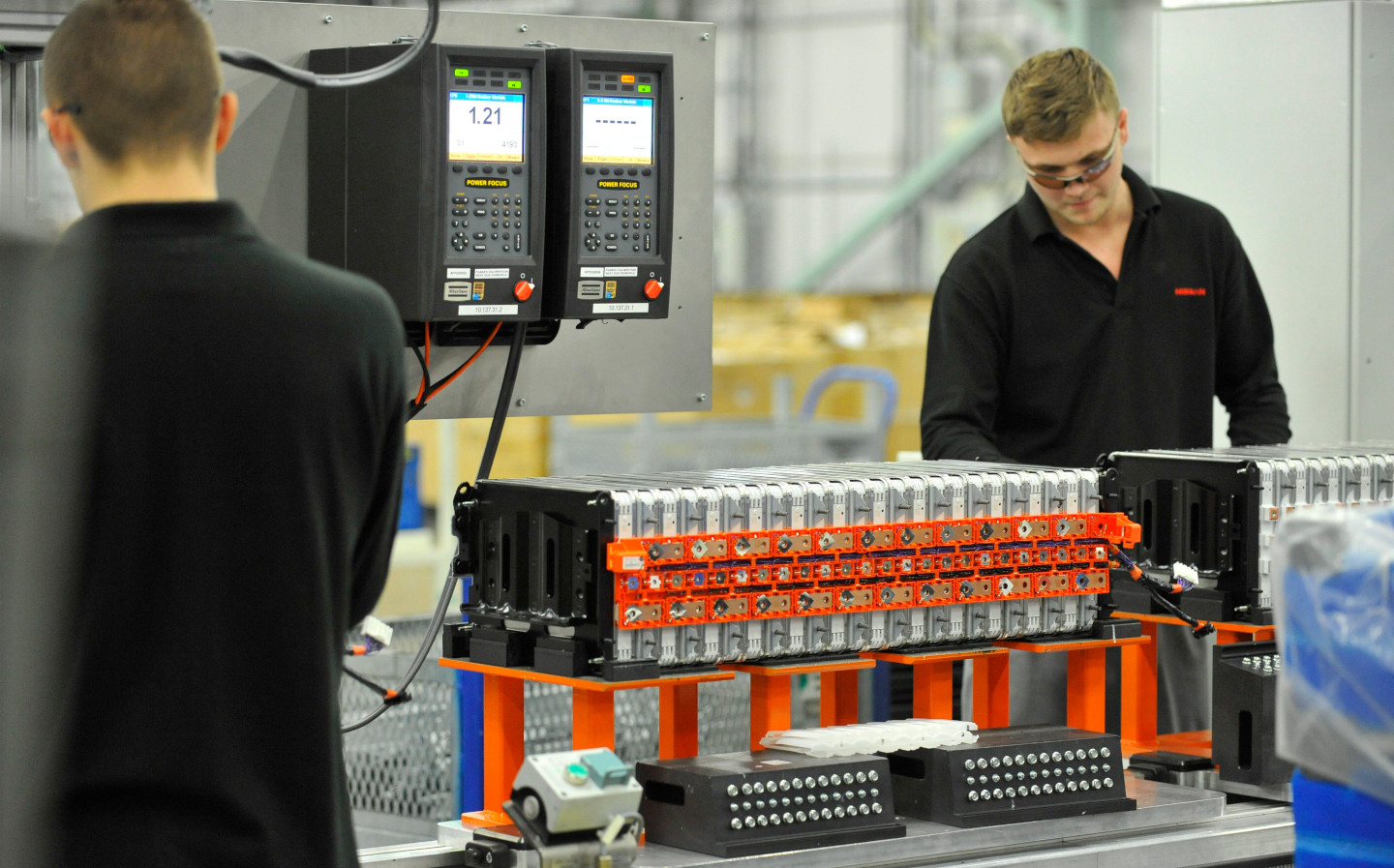Nissan seeks government support for UK gigafactory
Announcement of Sunderland battery plant could be made by November
NISSAN is seeking government support worth tens of millions of pounds in order to build a “gigafactory” in Sunderland that will make batteries for its electric cars.
The car maker is reportedly in “advanced” talks with government officials to set up the plant, which will make 200,000 batteries a year and create thousands of jobs, The Financial Times reported.
Nissan hopes to make the British gigafactory its largest outside of its native Japan, the paper said, adding that the site would not be run by Nissan itself but rather its Chinese battery supplier, Envision AESC.
Talks between Nissan and the Department for Business, Energy and Industrial Strategy began soon after the government’s eleventh-hour exit deal with the European Union, which was critical for car makers in order to avoid destructive 10% tariffs under World Trading Organisation (WTO) rules, according to reports.
A possible announcement of the gigafactory’s construction could come ahead of Britain’s hosting of COP26, the UN’s climate change summit in Glasgow this November.
Nissan’s Sunderland plant is the largest car making factory in the UK, employing around 6,000 people and contributing to a further 70,000 jobs across its north-eastern supply chain. Nissan came close to closing the plant last year but eventually opted to close its plant in Barcelona.
The car maker was one of the first to release a modern, mass-market fully electric car when it launched the Leaf hatchback a decade ago, and is currently preparing to begin deliveries of the Ariya SUV, its second battery-electric model.
When contacted by The Times, a Nissan spokesperson said: “Having established [electric vehicle and] battery production in the UK in 2013 for the Nissan Leaf, our Sunderland plant has played a pioneering role in developing the electric vehicle market.
“As previously announced, we will continue to electrify our line-up as part of our global journey towards carbon neutrality. However, we have no further plans to announce at this time.”
A Department for Business, Energy and Industrial Strategy also declined to comment on the possibility of a Nissan gigafactory, but said: “We are dedicated to securing gigafactories and continue to work closely with investors and vehicle manufacturers to progress plans to mass produce batteries in the UK.”
According to the Faraday Institution, an independent battery research programme, the UK will need eight gigafactories by 2040 in order to meet the increasing demand caused by the government’s “Green Industrial Revolution”, which will see the sale of new petrol and diesel cars banned from 2030.
The announcement comes at the same time as renewed rumours of a Tesla gigafactory in the UK. Tesla Motors CEO Elon Musk reportedly flew into Luton Airport on May 14, before visiting potential sites and departing to the under-construction Gigafactory in Berlin on May 16.
The newly founded Office for Investment, the brief of which is to support “the landing of high value investment opportunities into the UK which align with key government priorities”, reportedly asked regional authorities to submit proposals for suitable locations of around 250 hectares, with the West Midlands and Teeside said to be areas of particular interest.
Tweet to @KieranAhuja Follow @KieranAhuja
- After reading that Nissan is seeking government support for a UK gigafactory, you might be interested in other business articles from Driving.co.uk.
- The Volkswagen Group has received a £6.5bn offer for Lamborghini, according to reports.
- The CEO of electric van and bus startup Arrival has entered the Sunday Times Rich List for the first time.





